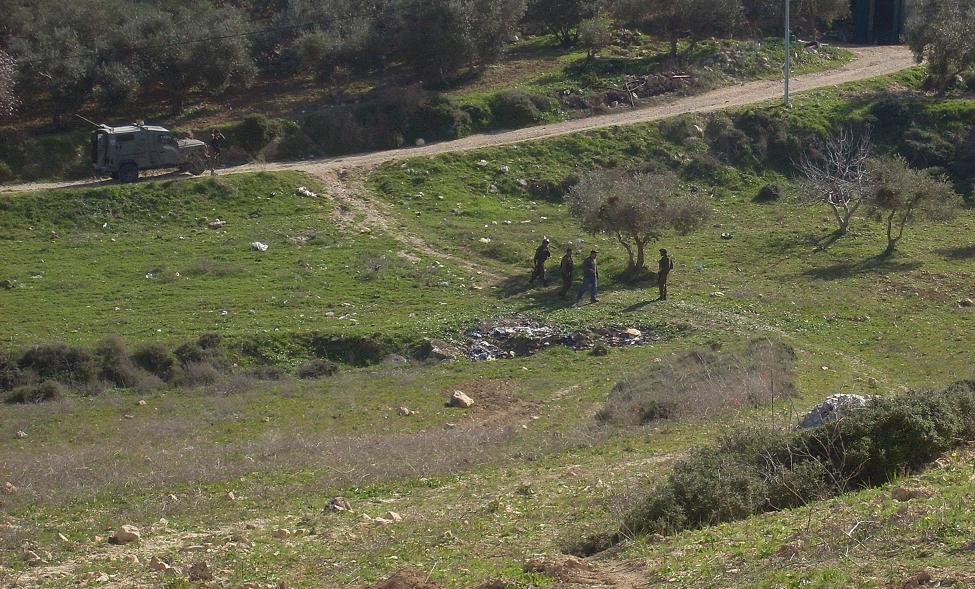Tag: Burin
-
Palestinians protest Israel’s illegal settlement policy by establishing new village “Al-Manatir” near Burin, Nablus
Update on 4 February: In what seems to be a collective punishment for last Saturday´s construction of al-Manateer neighbourhood on privately owned Palestinian land (classified as Area B, according to the Oslo Accords) in Burin, Sunday night saw the Israeli army arrest two young boys from the village. At around 8:30pm, a supposedly Palestinian ambulance…
-
Big punishments for small hopes
by Haroun Zeitoun 26 January 2013 | International Solidarity Movement, Burin, Occupied Palestine This morning in Burin, the village that sits in the valley between the Yizhar and Bracha colonial settlements just south of Nablus, saw a small yet high-spirited group plant olive trees. The task was done within an hour and afterwards international activists…
-
Settlers set ground on fire in Salman Valley, Burin [Update: Video added]
By Stephen Alexander November 6th 2012 | International Solidarity Movement, West Bank Today at around sundown, settlers from the illegal Israeli settlement of Yitzhar set fire to the ground in the Salman valley in Burin. The fire was in the same location where two ISMers and two members of the Michigan Peace Team (MPT) had…

